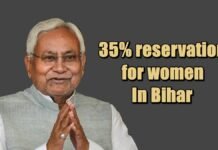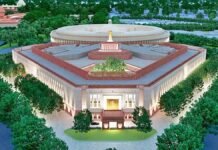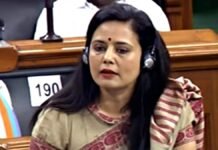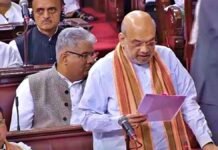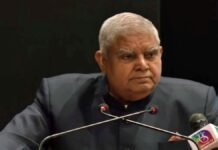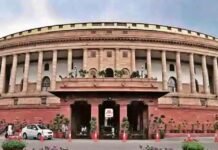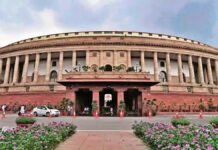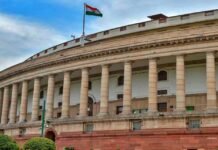
New Delhi: The 17th Lok Sabha, which was elected in 2019, concluded its last session on Saturday, February 10, 2024, with a record-high productivity of 97%. The lower house of the Parliament, which witnessed the participation of 78 women MPs, passed many important and historic bills, such as the Nari Vandan Bill, which granted 33% reservation for women in the Lok Sabha and state assemblies, and the Jammu and Kashmir Reorganization Bill, which revoked the special status of the erstwhile state and bifurcated it into two union territories.
Lok Sabha Speaker Om Birla, who presided over the session, praised the performance of the house and said that it had passed laws to advance Indian thought and culture. He also said that the 17th Lok Sabha was special because it had fulfilled its parliamentary responsibilities in both the old and the new buildings of the Parliament, as the country celebrated its 75th year of independence.
Birla also highlighted some of the new traditions that were introduced in this Lok Sabha, such as the positive response by the government during the Zero Hour, the live telecast of the proceedings of the standing committees, and the use of digital technology to facilitate the functioning of the house. He said that he had developed a bond with all the members of the house and considered them as his family. He also expressed his regret over the disciplinary actions that he had to take against some members for disrupting the house.
Birla said that he hoped that in the future, all the members would maintain the dignity and decorum of the house, which had high traditions, conventions and prestige. He said that he had tried to follow in the footsteps of the previous speakers and uphold the values of the house. He said that a total of 222 laws were passed in the 17th Lok Sabha, out of which 63 were passed in the budget session.
The following table shows some of the key bills that were passed by the 17th Lok Sabha:
| Bill | Description |
|---|---|
| Nari Vandan Bill | It amended the Constitution to provide 33% reservation for women in the Lok Sabha and state assemblies. |
| Jammu and Kashmir Reorganization Bill | It revoked the special status of Jammu and Kashmir under Article 370 and bifurcated it into two union territories: Jammu and Kashmir, and Ladakh. |
| Citizenship Amendment Bill | It granted citizenship to non-Muslim refugees from Pakistan, Bangladesh and Afghanistan who had entered India before December 31, 2014. |
| Farm Laws | They comprised of three laws that aimed to liberalize the agricultural sector by allowing farmers to sell their produce outside the regulated markets, enter into contracts with private buyers, and remove stock limits on essential commodities. |
| National Education Policy | It replaced the 34-year-old education policy and introduced several reforms, such as a new 5+3+3+4 structure of school education, a four-year undergraduate degree with multiple exit options, a single regulator for higher education, and a national testing agency for entrance exams. |
| Labour Codes | It granted citizenship to non-Muslim refugees from Pakistan, Bangladesh, and Afghanistan who had entered India before December 31, 2014. |
| Personal Data Protection Bill | It sought to regulate the collection, processing, storage, and transfer of personal data of individuals by the state and private entities. It also proposed to establish a Data Protection Authority to oversee the implementation of the law. |
| Transgender Persons (Protection of Rights) Bill | It provided for the recognition and protection of the rights of transgender persons, such as the right to self-identify their gender, the right to education, employment, health, and welfare, and the prohibition of discrimination and violence. |


















